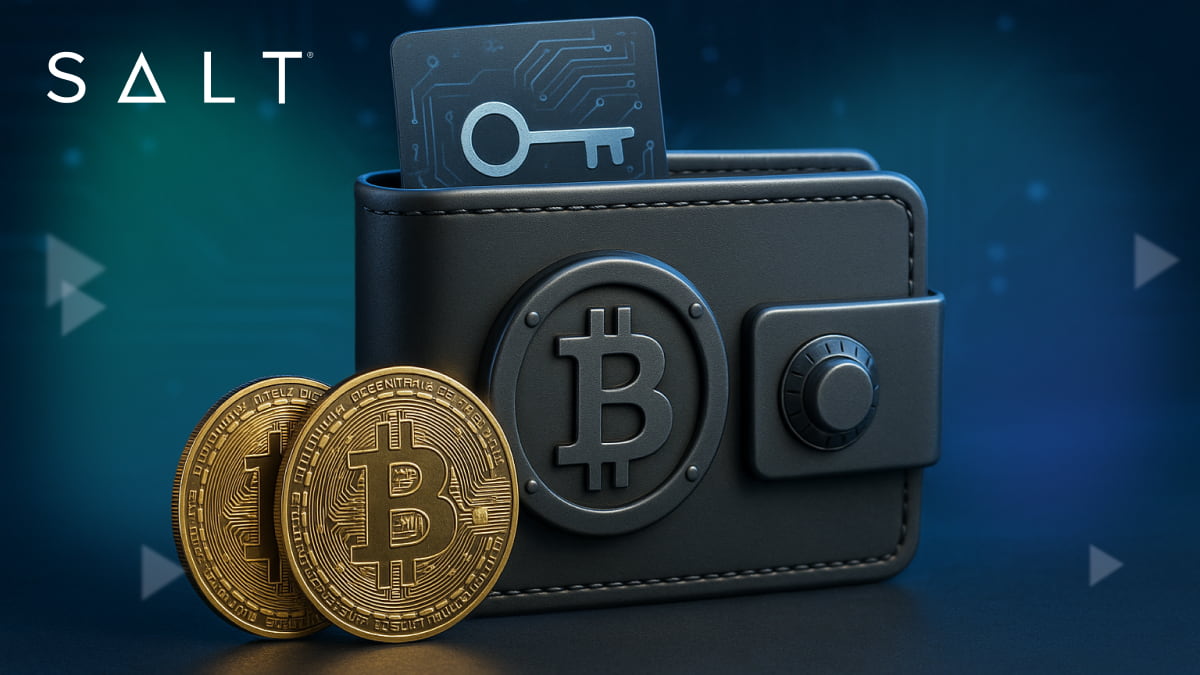Despite the name, a Bitcoin wallet doesn’t actually hold Bitcoin.
Instead, it holds the private keys, the cryptographic credentials that give you access to your Bitcoin on the blockchain. Think of it as a digital vault key. If you own the key, you control the funds. If you don’t, you’re trusting someone else to guard your assets.
In this guide, we’ll break down how Bitcoin wallets work, the types of wallets available, and how to choose the right one for your needs, whether you’re a beginner or a serious HODLer.
What Does a Bitcoin Wallet Actually Do?
A Bitcoin wallet is a piece of software (or hardware) that manages your private and public keys. These keys are what allow you to send and receive Bitcoin securely on the blockchain.
- Private key: Like a password or master key, it lets you spend or transfer your Bitcoin.
- Public key: Like your email address, it lets others send you Bitcoin and verify your holdings.
Importantly, Bitcoin itself never leaves the blockchain. It’s always there, recorded and immutable. Your wallet simply gives you access to it.
How Bitcoin Wallets Work: The Technical Core
A wallet performs four essential functions:
- Generates key pairs
Most wallets automatically create a secure private/public key pair. - Stores your private keys
This is the core job, keeping your access safe. - Signs transactions
When you send Bitcoin, the wallet uses your private key to sign and authorize the transaction. - Broadcasts to the blockchain
The signed transaction is sent to the Bitcoin network, verified by miners, and permanently recorded.
Open Source & Self-Sovereignty
One of Bitcoin’s core strengths is that its wallet software is open source. You don’t need to rely on a third party—you can:
- Download and run your own wallet software.
- Manually generate private keys.
This transparency ensures trust and aligns with the decentralized ethos of Bitcoin: don’t trust, verify or “not your keys not your Bitcoin”.
Custody and Control: Why Wallet Choice Matters
“Not your keys, not your Bitcoin.”
This saying sums up why wallet choice is crucial. If a third party controls your private key, they control your Bitcoin, not you. Let’s look at your options:
Types of Bitcoin Wallets (and Which One Might Fit You)
| Wallet Type | Description | Pros | Cons |
| Software Wallets | Apps or programs on desktop or mobile | Easy to use, great for daily transactions | More exposed to hacks (hot wallet) |
| Hardware Wallets | Physical devices that store private keys offline | Excellent security, long-term HODLing | Costs money, slightly less convenient |
| Paper Wallets | Printout of your keys and QR codes | Fully offline, cheap | Easy to lose/damage, not user-friendly |
| Custodial Wallets | Wallets managed by third parties (e.g. exchanges) | Super convenient, instant setup | You give up control of your keys |
Types of Bitcoin Wallets
Bitcoin wallets come in various forms, each offering different levels of security and convenience:
- Software Wallets: Applications installed on computers or smartphones. They are user-friendly and suitable for everyday transactions but are connected to the internet, making them more vulnerable to hacks. For example certain software might require you to set up a separate password to access the software wallet.
- Hardware Wallets: Physical devices that store private keys offline. They offer enhanced security against online threats. A popular example is a Ledger Hardware wallet for example.
- Paper Wallets: Physical printouts of private and public keys. While they keep keys offline, they can be easily lost or damaged and are less practical for frequent transactions. (With a paper wallet you will still have to create the wallet on the blockchain, but you will be using the “paper wallet” to store the keys as opposed to storing the keys some other way).
- Custodial Wallets: Managed by third-party services, such as cryptocurrency exchanges. They handle the storage and security of private keys on behalf of the user. While convenient, they require trust in the provider’s security measures.
It is important to understand if anyone gets access to your private key they have access to the Bitcoin associated with that wallet no matter what type of wallet you use.
Hot vs. Cold Wallets: What’s the Difference?
These terms refer to whether a wallet is connected to the internet:
- Hot Wallets: Online wallets like mobile apps or exchanges. Great for quick access but more vulnerable to attacks.
- Cold Wallets: Offline wallets like hardware or paper wallets. Slower to use, but far more secure for long-term storage.
If you’re holding large amounts of Bitcoin or planning to HODL for years, cold storage is usually the safest route.
Security Best Practices for Any Wallet
No matter which wallet you choose, your private key security is everything. Here’s how to protect your digital gold:
- Back up your private key (and seed phrase) in multiple secure locations.
- Use strong, unique passwords for wallet apps and backup services.
- Enable two-factor authentication (2FA) when available.
- Avoid phishing links and fake wallet software—always verify sources.
- Be cautious with custodial wallets. If you must use one, ensure it has a stellar security record and insurance coverage.
Whether you’re just starting or deep into your crypto journey, understanding Bitcoin wallets is fundamental. Your wallet is more than an app or a device—it’s the gateway to true financial sovereignty.
If you don’t control your keys, you don’t control your Bitcoin.
Take time to explore wallet options, prioritize security, and always verify, never blindly trust. And when you’re ready to use your bitcoin without selling it, SALT is here to help.
Learn More About Bitcoin-Backed Loans at SALT
P.S Did you know that SALT lending is the first Bitcoin backed lender since 2016?








